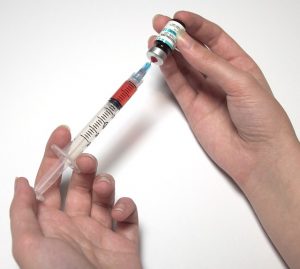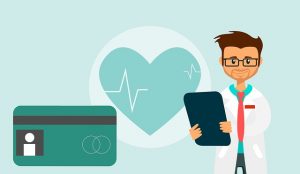Big Data has changed the method we handle, examine, and take advantage of data in any market. In this short article, we would like to deal with the requirement of big data in health care: why and how can it help? We will then offer you 3 reasons in health care that currently exist and that we benefit from.
1. Clients Prediction For A Better Staffing
 Big data is helping to resolve this issue, a minimum of at a couple of healthcare facilities in Paris. A Forbes post data how four healthcare facilities which belong to the Help Publique-Hôpitaux de Paris have been using data from a range of sources to come up with per hour and day-to-day forecasts of the number of clients are anticipated to be at each medical facility.
Big data is helping to resolve this issue, a minimum of at a couple of healthcare facilities in Paris. A Forbes post data how four healthcare facilities which belong to the Help Publique-Hôpitaux de Paris have been using data from a range of sources to come up with per hour and day-to-day forecasts of the number of clients are anticipated to be at each medical facility.
Among the key data sets is ten years’ worth of health center admissions records, which data researchers crunched using “time series analysis” methods. These analyses allowed the scientists to see appropriate patterns in admission rates. They might use to discover the most precise algorithms that forecasted future admissions patterns.
2. Electronic Health Records (EHRs)
 It’s the most common application of big data in medication. Every record is made up of one flexible file, which implies that doctors can carry out changes over time with no documents and no risk of data duplication.
It’s the most common application of big data in medication. Every record is made up of one flexible file, which implies that doctors can carry out changes over time with no documents and no risk of data duplication.
EHRs can also set off tips and cautions when a client ought to get a brand-new laboratory test or track prescriptions to see if a client has been following doctors’ orders.
EHR are an excellent concept; lots of nations still have a hard time to execute them entirely. U.S. has made a significant leap with 94% of healthcare facilities embracing EHRs according to this HITECH research study. However, the EU still drags. An enthusiastic instruction prepared by the European Commission is expected to alter it: by 2020 centralized European health record system must end up being a truth.
Kaiser Permanente is blazing a trail in the U.S. and might offer a design for the EU to follow. They have entirely carried out a system called HealthConnect that shares data throughout all of their centers and makes it much easier to use EHRs. A McKinsey report on big data health care specifies that “The integrated system has improved results in heart disease and accomplished an approximated $1 billion in cost savings from decreased workplace sees and laboratory tests.”.
3. Real-Time Alerting
 A big reason for big data analytics in healthcare has one vital performance which is real-time alerting. In medical facilities, Clinical Decision Support (CDS) software application examines medical data on the area, supplying health specialists with suggestions as they make authoritative decisions.
A big reason for big data analytics in healthcare has one vital performance which is real-time alerting. In medical facilities, Clinical Decision Support (CDS) software application examines medical data on the area, supplying health specialists with suggestions as they make authoritative decisions.
Doctors want clients to remain away from health centers to prevent pricey internal treatments. Analytics, currently trending as one of business intelligence buzzwords in 2019, has the prospective to enter into a brand-new technique. Wearables will collect clients’ health data continuously and send this data to the cloud.
Furthermore, this info will be accessed to the database on the state of health of the public, which will allow doctors to compare this data in a socio-economic context and customize the shipment techniques appropriately. Organizations and care supervisors will use advanced tools to monitor this big data stream and respond each time the outcomes will be troubling.
If a client’s blood pressure increases amazingly, the system will send out an alert in genuine time to the physician who will then take action to reach the client and administer procedures to reduce the pressure.